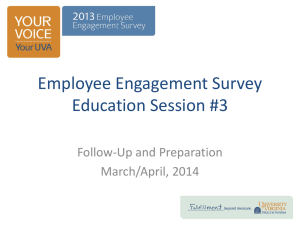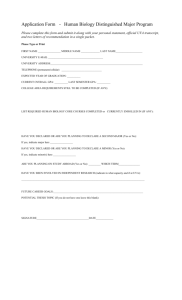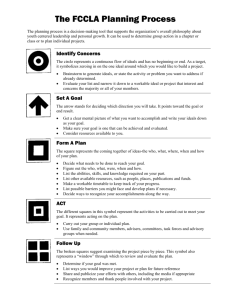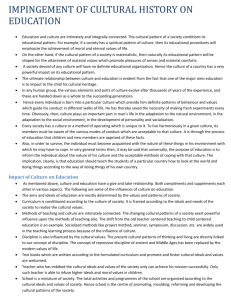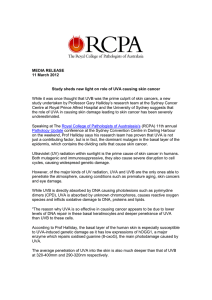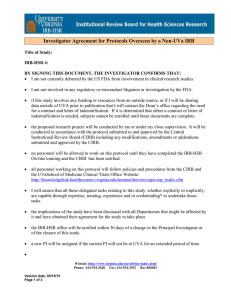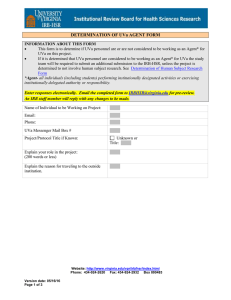The Arts & Public Policy Spring semester, 2014
advertisement
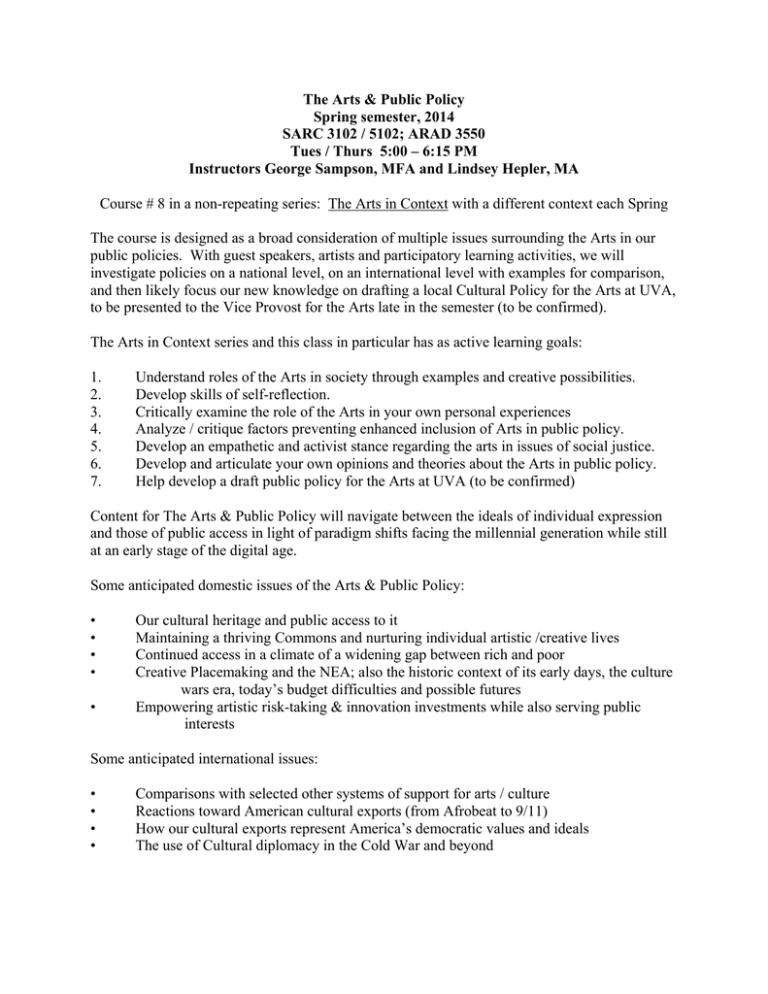
The Arts & Public Policy Spring semester, 2014 SARC 3102 / 5102; ARAD 3550 Tues / Thurs 5:00 – 6:15 PM Instructors George Sampson, MFA and Lindsey Hepler, MA Course # 8 in a non-repeating series: The Arts in Context with a different context each Spring The course is designed as a broad consideration of multiple issues surrounding the Arts in our public policies. With guest speakers, artists and participatory learning activities, we will investigate policies on a national level, on an international level with examples for comparison, and then likely focus our new knowledge on drafting a local Cultural Policy for the Arts at UVA, to be presented to the Vice Provost for the Arts late in the semester (to be confirmed). The Arts in Context series and this class in particular has as active learning goals: 1. 2. 3. 4. 5. 6. 7. Understand roles of the Arts in society through examples and creative possibilities. Develop skills of self-reflection. Critically examine the role of the Arts in your own personal experiences Analyze / critique factors preventing enhanced inclusion of Arts in public policy. Develop an empathetic and activist stance regarding the arts in issues of social justice. Develop and articulate your own opinions and theories about the Arts in public policy. Help develop a draft public policy for the Arts at UVA (to be confirmed) Content for The Arts & Public Policy will navigate between the ideals of individual expression and those of public access in light of paradigm shifts facing the millennial generation while still at an early stage of the digital age. Some anticipated domestic issues of the Arts & Public Policy: • • • • • Our cultural heritage and public access to it Maintaining a thriving Commons and nurturing individual artistic /creative lives Continued access in a climate of a widening gap between rich and poor Creative Placemaking and the NEA; also the historic context of its early days, the culture wars era, today’s budget difficulties and possible futures Empowering artistic risk-taking & innovation investments while also serving public interests Some anticipated international issues: • • • • Comparisons with selected other systems of support for arts / culture Reactions toward American cultural exports (from Afrobeat to 9/11) How our cultural exports represent America’s democratic values and ideals The use of Cultural diplomacy in the Cold War and beyond
